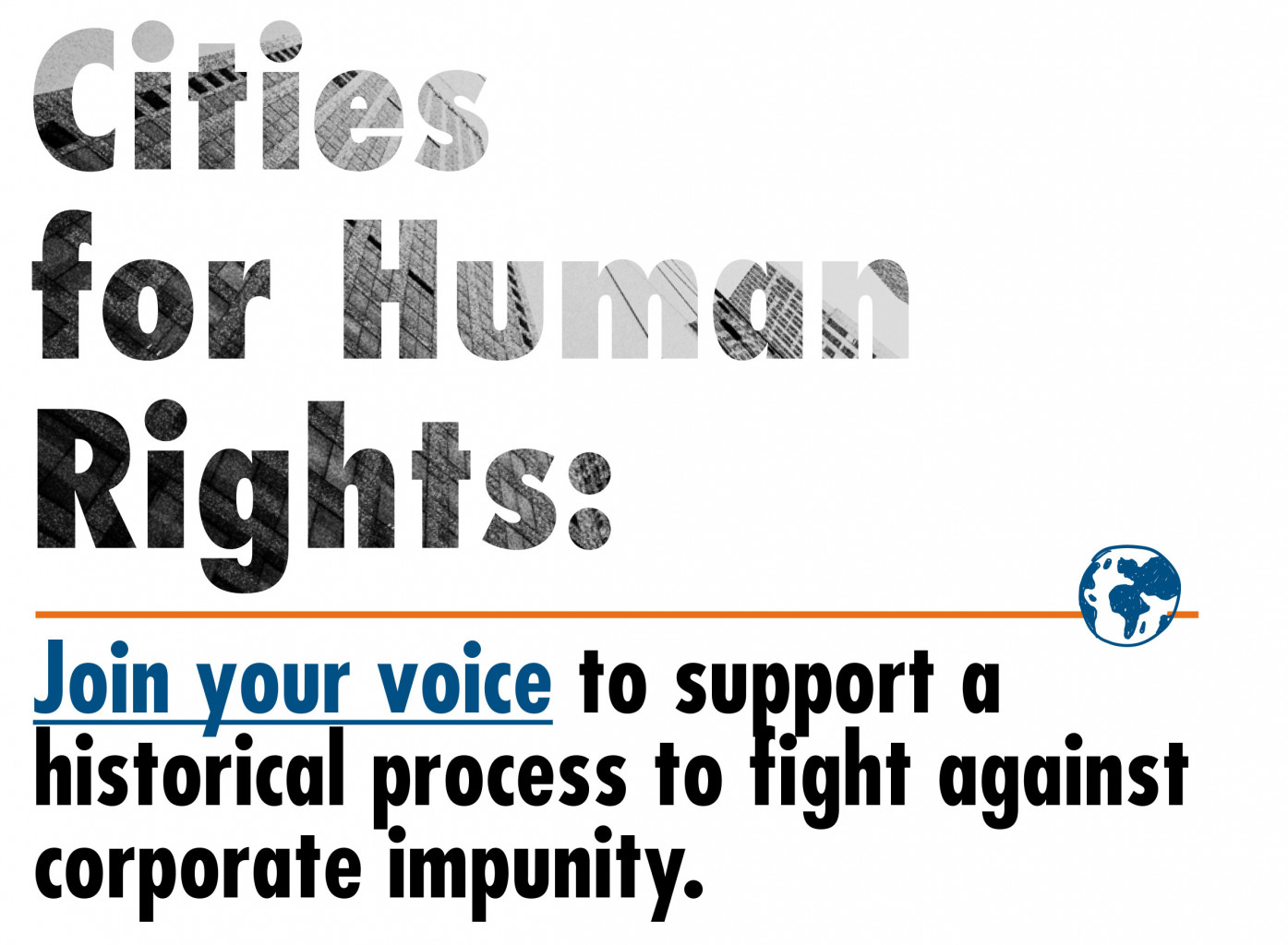
Cities are on the front lines of today’s most urgent challenges, dealing with the climate crisis and rising global inequality. Local governments from across the world are increasingly committed to the advance of #HumanRights and the #RightToTheCity. However, the absence of regulation of key players such as transnational corporations is causing major distortions to human rights access by many city residents, from the right to housing to the right to water or a healthy environment, among many others. Faced with this worsening scenario, which is increasingly challenging the power of action of the local authorities and communities worldwide, local governments reaffirm their commitment to a shared vision, that of “Cities for Human Rights, not for Profit”.
CONTEXT
June 2014 marked a historical milestone in returning the regulation of Transnational Corporations (TNCs) onto the international agenda. The UN Human Rights Council established an Open Ended Inter-governmental Working Group (OEIGWG) for the development of a legally binding treaty on TNCs and other business enterprises with respect to human rights. The goal was to put an end to the global loopholes in international human rights law and ensure that corporations are made legally accountable for human rights violations and environmental crimes. Going beyond current voluntary frameworks of social corporate responsibility represents a key stepping stone to making the global economy fit for people’s and communities rights and wellbeing, and to stop corporate impunity.
To support the continuation of negotiations on this new instrument at the United Nations, we the undersigned, as worldwide local authorities:
- Highlight that our planet needs the Binding Treaty to balance the unfair consequences of unregulated globalisation, which has generated asymmetries of power between States, communities, cities, local councils, individuals, and corporations in terms of protection of people’s human rights, promotion of the public interest, and access to justice, especially in the poorest regions of the world.
- Applaud, therefore, the initiative of Ecuador and South Africa, and the efforts showed by other states that are supporting the process towards the achievement of an international Binding Treaty to overcome TNC impunity during the five OEIGWG Sessions from 2015 to 2019.
- Welcome the open and participatory process that is being developed by the OEIGWG in which not only states, but also international organisations, civil society organisations, affected people, parliamentarians, scholars and other relevant stakeholders are involved.
- Stress that the future Treaty should create specific mechanisms that strengthen national judicial systems, as well as international cooperation and monitoring, to reinforce State legal responsibility in providing access to remedies for affected communities, and to prevent the recurrence of violations of human rights resulting from the operations of TNCs. We stress the need for binding principles that protect human rights and the environment, and guarantee corporate responsibility by means, among others, of legally enforceable obligations.
- Insist that this Treaty must play an important role in addressing worker’s concerns rooted in labour rights violations perpetrated by TNCs in global value chains, ensuring that states are also responsible for violations that originate in their countries and produce damage beyond their borders. We share ITUC’s view that enforceability of labour standards is a sine qua non condition to restore imbalances between highly privileged investor rights and peoples’ labour and human rights.
TAKE ACTION NOW
Therefore, we urge states, and regional organisations, to actively pursue engagement in this UN process and to work towards an effective and legally binding international instrument on TNCs and other business enterprises with respect to human rights, in order to ensure that people’s dignity, as enshrined by universal political, economic, social and cultural rights, is prioritised and guaranteed worldwide over private profits, and to ensure the protection of our planet.
Resources to campaign:




